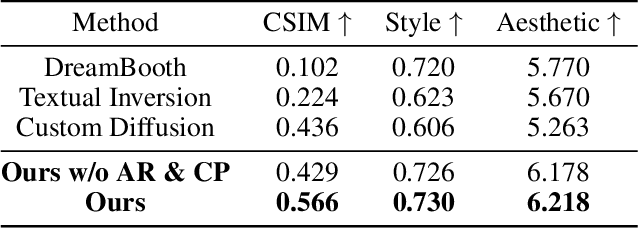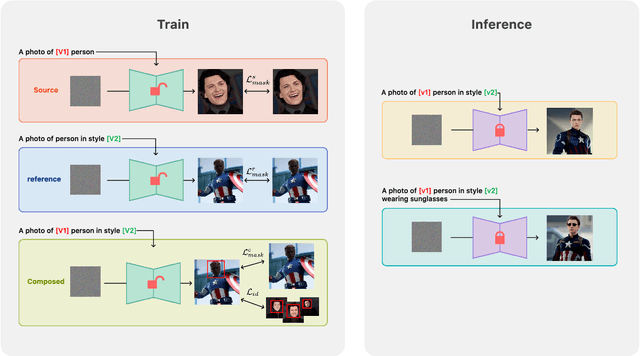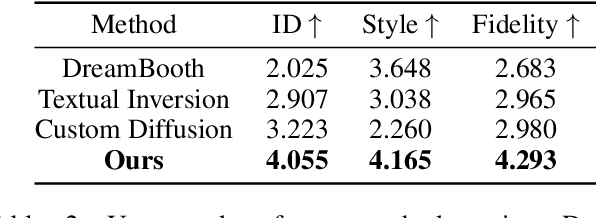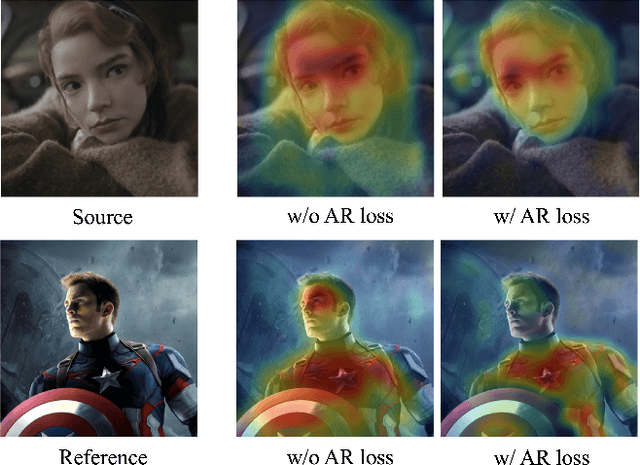Jaeyo Shin
DreamCatalyst: Fast and High-Quality 3D Editing via Controlling Editability and Identity Preservation
Jul 16, 2024



Abstract:Score distillation sampling (SDS) has emerged as an effective framework in text-driven 3D editing tasks due to its inherent 3D consistency. However, existing SDS-based 3D editing methods suffer from extensive training time and lead to low-quality results, primarily because these methods deviate from the sampling dynamics of diffusion models. In this paper, we propose DreamCatalyst, a novel framework that interprets SDS-based editing as a diffusion reverse process. Our objective function considers the sampling dynamics, thereby making the optimization process of DreamCatalyst an approximation of the diffusion reverse process in editing tasks. DreamCatalyst aims to reduce training time and improve editing quality. DreamCatalyst presents two modes: (1) a faster mode, which edits the NeRF scene in only about 25 minutes, and (2) a high-quality mode, which produces superior results in less than 70 minutes. Specifically, our high-quality mode outperforms current state-of-the-art NeRF editing methods both in terms of speed and quality. See more extensive results on our project page: https://dream-catalyst.github.io.
MagiCapture: High-Resolution Multi-Concept Portrait Customization
Sep 13, 2023



Abstract:Large-scale text-to-image models including Stable Diffusion are capable of generating high-fidelity photorealistic portrait images. There is an active research area dedicated to personalizing these models, aiming to synthesize specific subjects or styles using provided sets of reference images. However, despite the plausible results from these personalization methods, they tend to produce images that often fall short of realism and are not yet on a commercially viable level. This is particularly noticeable in portrait image generation, where any unnatural artifact in human faces is easily discernible due to our inherent human bias. To address this, we introduce MagiCapture, a personalization method for integrating subject and style concepts to generate high-resolution portrait images using just a few subject and style references. For instance, given a handful of random selfies, our fine-tuned model can generate high-quality portrait images in specific styles, such as passport or profile photos. The main challenge with this task is the absence of ground truth for the composed concepts, leading to a reduction in the quality of the final output and an identity shift of the source subject. To address these issues, we present a novel Attention Refocusing loss coupled with auxiliary priors, both of which facilitate robust learning within this weakly supervised learning setting. Our pipeline also includes additional post-processing steps to ensure the creation of highly realistic outputs. MagiCapture outperforms other baselines in both quantitative and qualitative evaluations and can also be generalized to other non-human objects.
 Add to Chrome
Add to Chrome Add to Firefox
Add to Firefox Add to Edge
Add to Edge